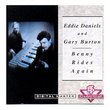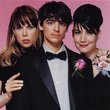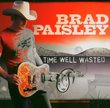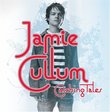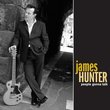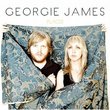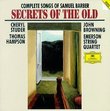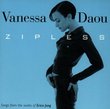| All Artists: Stanley Clarke Title: Toys of Men Members Wishing: 5 Total Copies: 0 Label: Heads Up Original Release Date: 1/1/2007 Re-Release Date: 10/16/2007 Genres: Jazz, Pop, R&B Style: Jazz Fusion Number of Discs: 1 SwapaCD Credits: 1 UPC: 053361312824 |
Search - Stanley Clarke :: Toys of Men
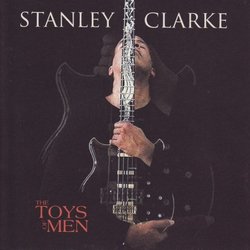 | Stanley Clarke Toys of Men Genres: Jazz, Pop, R&B
It has been somewhat of a frustrating run for fans of uber-bassist Stanley Clarke's legendary, genre-defining '70s work. After establishing himself as the world's premier four-string jazz-rock maestro with his work in Retu... more » |
Larger Image |
CD DetailsSynopsis
Amazon.com It has been somewhat of a frustrating run for fans of uber-bassist Stanley Clarke's legendary, genre-defining '70s work. After establishing himself as the world's premier four-string jazz-rock maestro with his work in Return to Forever and solo albums such as School Days, Clarke altered his focus by churning out middling commercial funk pop and soundtracks. They diluted his status as a talented musician whose fleet-fingered style and elaborate picking technique influenced a generation of bass players. But he's back now, with an anti-war-propelled set that is an encouraging and convincing return to form. The opening 11-minute, six-part suite, featuring fiery fiddle from the intriguingly named Mads Tolling, sounds like prime-era Mahavishnu Orchestra, and also highlights Clarke's frantic yet precise staccato technique on his instrument. It alone is worth the price of this disc, but the remaining dozen tracks emphasize Clarke's intentions to prove he's never lost his touch. He shifts between acoustic and electric settings, inserting stark solo and duo interludes that spotlight his prodigious talent between longer work-outs with his tight group. "Bad Asses," where he is accompanied only by drums, sizzles with thumb-numbing, lightning-hot funk and "Chateauvallon 1972 (Dedicated to Tony Williams)" finds Clarke in fusion territory again working a sizzling, dramatic slow riff as powerful and vital as anything he has done in decades. Long-time admirers now have an album that indisputably proves Stanley Clarke hasn't lost a step as the foremost bass player of his generation. --Hal Horowitz Similarly Requested CDs
|
CD ReviewsA solid, balanced, and diverse effort. Michael Stack | North Chelmsford, MA USA | 10/17/2007 (4 out of 5 stars) "Bassist Stanley Clarke's solo career has been notoriously inconsistent-- with lucrative film scoring consuming much of his time and a tendency towards (not necessarily bad) smooth jazz sounds, his works can be frustrating and it can feel as though the jaw-dropping virtuoso performances he brings don't quite get matched. So with each new record, it's always a question-- r&b-laced smooth jazz or funk fusion? In the case of "The Toys of Men", it seems to be something entirely different, an unusual mix between fusion and acoustic jazz and one of the more satisfying albums in Clarke's catalog. Performed by a core quintet featuring Clarke on any number of basses, Ruslan Sirota on keyboards, Mads Tolling on violin, Jef Lee Johnson on guitar and Ronald Bruner, Jr. behind the drum kit, with guest spots by vocalist Esperanza Spalding, guitaristts Tomer Shtein and Michael Landau, keyboardist Phil Davis and percussionist Paulinho da Costa, the album finds an unusual mix of electric and acoustic. A good example is the opening extended title suite-- it opens sounding like it takes a page out of the Mahavishnu Orchestra book, chugging fusion driven by a superb, rolling bass line from Clarke and a frantic statemetn by Tolling. But once you get comfortable with it, it gives way to a gentle acoustic passage, featuring a building melody and wordless vocals by Spalding and closes with a gentle, hopeful, upper register electric bass solo over a gentle piano and drum accompaniment. In fact, while Clarke has shown more virtuoso performances over the years, I dare say this is his most sensitive, emotive and in many ways powerful playing. The remainder of the album is a mix of different sounds, split between ensemble pieces (where Clarke often plays an acoustic bass guitar) and brief solo acoustic bass (violin) performances. The ensemble pieces are a nice mix, from a pair of superb fusion workouts with absolutely staggering slap bass workouts that could have been lifted straight off of School Days in "Come On" and "Bad *sses" (the latter in particular, as a duet between Clarke and drummer Bruner, provides an opportunity for some serious pyrotechnics) to gentler, more lyrical pieces ("Jerusalem", featuring some fantastic acoustic bass guitar performance from Clarke, the achingly beautiful ensemble piece "La Cancion de Sofia", featuring a simply lovely arco melody statement from Clarke on upright). Along the way, Clarke also drifts into deep funk ("Game", with another jaw-dropping slap bass performance), a pleasant-but-not-terribly-exciting smooth jazz piece (Spalding vocal feature "All Over Again") and a tribute to drummer Tony Williams in the loping drum feature "Chateauvallon 1972". The bass violin solo pieces are generally all of the same form-- brief, pizzicato performances that provide Clarke an opportunity to show a side of himself that has been fairly recessed in term of considering his legacy. He shows a fairly extensive technique (the extended "El Bajo Negro" is the best example of this), a well developed woody tone, and a propensity for percussive attacks (as illustrated on "Back in the Woods"). Closer "Bass Folk Song No. 6" breaks the pattern by being gentle and lyrical and probably the most satisfying of the five solo upright performances. For some reason, I keep thinking that "The Toys of Men" is one of those records that I'll end up sticking up on a shelf and not listening to, but I can't put my finger on why. It's a consistently satisfying, engaging and entertaining record, and since I'm really enjoying it." Ingenious and adventurous, at last ! kons | 10/25/2007 (4 out of 5 stars) "The virtuoso bassist Stanley Clarke examines the emotional sweep of war in the Middle East on this studio recording. "The Toys of Men" also includes acoustic bass interludes that provide a stirring counterpoint to Clarke's more well known fiery electric bass attack. Clarke has always been a phenomenal bass player but, in a high-level journeyman career since then, he has written a ton of TV and film scores (everything from "Pee-Wee's Playhouse" to "Boyz in the Hood") and clearly kept his bass chops alive and well. Clarke found international fame with Chick Corea's "Return to Forever" before landing his own solo deal in the early 1970s. One of the pioneers of the "slap" bass technique, Clarke's latest release is described as a "masterpiece" by Billboard magazine, themed with the stupidity and futility of war and including an 11-minute title track As a composer and band leader, he is a restless animal on this disc, shifting from mood to mood, texture to texture. But Clarke the bass player is in constant evidence, as soulful, songful and rippingly virtuosic as ever. This disc is a sudden, surprising and admirable reminder that Stanley Clarke, at 56, is still out there and able to get your attention. Also it is a showcase of amazing musicianship, encompassing straight-up fusion and funk, to softer edges and longer thematic passages. On this unusual and challenging offering, Stanley Clarke is joined by Paulinho Da Costa (percussion), Esperanza Spalding on vocals, Jef Lee Johnson (guitar), Michael Landau (guitar - acoustic and electric), drummer Ronald Brumer, Jr., guitarist Tomer Shtein, keyboardist Ruslan Sirota, and violinist Mads Tolling. Clarke uses the opening collection of connected themes to take off from an earlier song called "Toys" that he recorded with drummer (and former RTF member) Lenny White in a project they called Vertú. Hear him play solo, though, on his own "Bass Folk Song No. 6" and "Back in the Woods", and you know that his is a talent that cries out to be in the company of absolute peers. Still, what a pleasure it is to hear a big, ambitious Stanley Clarke disc again. Stanley Clarke is a genius and an amazing bass player although (the track "Jerusalem") is a little bit long, but it has a nice melody. The facility displayed by Stanley Clarke and his team is astounding, as they rip through counterpoint and unison lines, making all the unconventional shifts sound completely organic. I am hugely impressed by the technique and the fine sound. There was an awful lot going on for the musicians. Of course, technology helps that but they are major league players, you can hear that. It's very very impressive. It's astounding. It's brilliant. It marks Stanley's return to his trademark slapping bass chops and to his legendary recordings' standard. Album's highlights : the bluesy two-minutes "Hmm Hmm", the adventurous "El Bajo Negro", "Châteauvallon 1972" and "Jerusalem"." The Bass Of Clarke Andre S. Grindle | Brewer Maine | 11/04/2007 (4 out of 5 stars) "It is very common place in the past decade to have to wait a very long time for Stanley Clarke to put out new material. And the wait between this and his last album 1, 2, To the Bass pretty much fits the bill. 'The Toys Of Men' is one of those albums that sounds like it was made for the pleasure of every kind of Stanley Clarke fan-there are bombastic fusion excersises,some funky numbers and a good helping of electric and acoustic bass solos.My personal opinion is that too many of them ring somewhat hollow.For one,this recording features somewhat obscure musicians and they all tend to rely on creating a certain sound rather then writing clever compositions for them,so at best some of this sounds like Journey to Love or even his debut Children of Forever without the same level of compositional flare. I've only listened to this album twice and so far nothing has really leaped out at me as overly spellbinding or even memorable.But it all sounds very good so I suppose it did accomplish it's mission."
|

 Track Listings (13) - Disc #1
Track Listings (13) - Disc #1